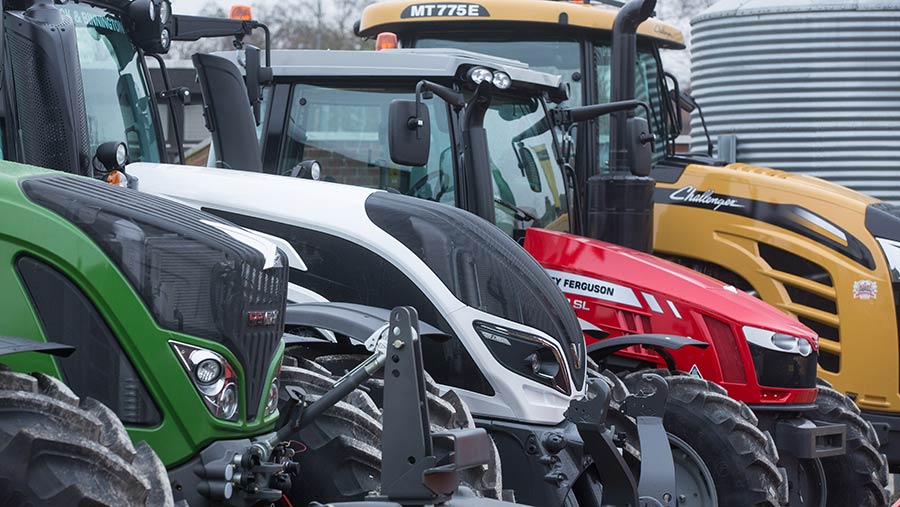New tractor sales fall as bottlenecks in supply chain bite
 © Tim Scrivener
© Tim Scrivener UK tractor registrations for November 2021 were down 16% compared with the same month last year, with the slump thought to be down to bottlenecks in global supply chains.
Figures published by the Agricultural Engineers Association (AEA) for last month show only 543 new tractors were registered, which is only the second time in the past 12 months that registrations have fallen below the level of a year earlier.
It comes despite all reports suggesting demand for tractors remains very strong.
See also: Tractor sales recovery continues – but long lead times
Registrations for the year to date are actually 16% up on the equivalent period of 2020 and are 7% higher than the total for the whole of last year.
But November’s figures signal that the bottlenecks in global supply chains are increasingly affecting the farm equipment sector, said the AEA.
Stephen Howarth, AEA agricultultural economist, said lead times for tractors were now at least four months and often six months or more.
The wait times for some larger, more complex machines were even longer, with most categories of equipment having seen some lengthening of lead times.
“I’ve even heard of some products being ‘sold out’ for the whole of 2022 already,” he said.
“Manufacturers and dealers are generally low on [new and used] stock too, so it won’t be easy for farmers to get hold of kit, even if they are more flexible about what they want.”
The situation is prompting growing numbers of farmers to look to source second-hand equipment rather than new.
‘Strong demand’
Simon Wearmouth, partner with Brown & Co, confirmed that demand for second-hand farm machinery remained very strong.
Tractors were in short supply and there was also significant interest in medium-sized combines, cultivation kit and trailers.
Higher prices for new equipment and long lead times were significant factors in driving demand, he said.
“There have been various price increases on the newer kit and getting a new machine on-farm to replace what you’ve got is now taking such a long time that it is forcing people to look at the second-hand market, where they can have a tractor on the same day as they buy it.”
Mr Wearmouth said while in the past it would have been common for dealers to be able to buy from machinery sales, now it was much more common for a farmer to be the buyer. “They are outbidding the trade.”
A consequence of this shift is that auctions are now seeing much less kit exported.
“Lower-value root equipment is probably the only machinery class that we are seeing go abroad at the moment,” he said.
“Higher-value, well-maintained stuff is generally staying in the UK.”

